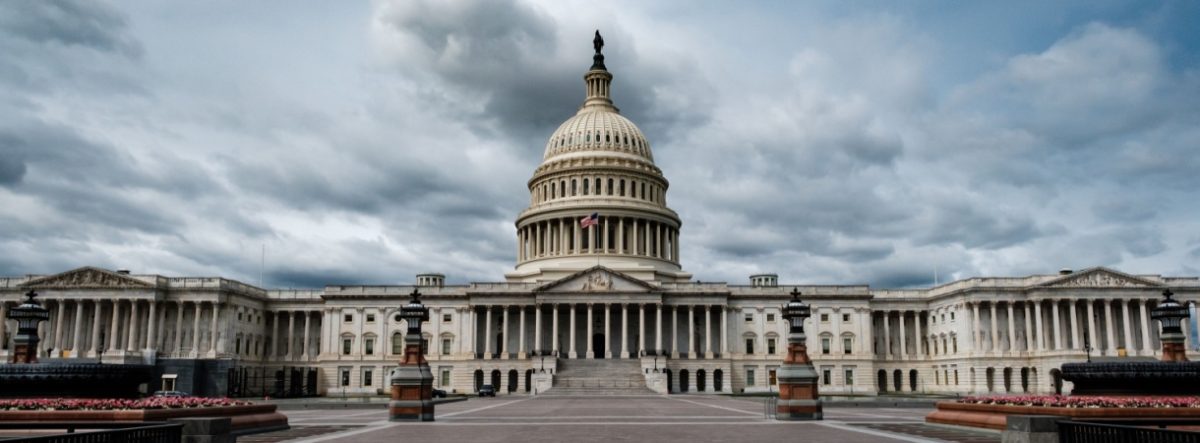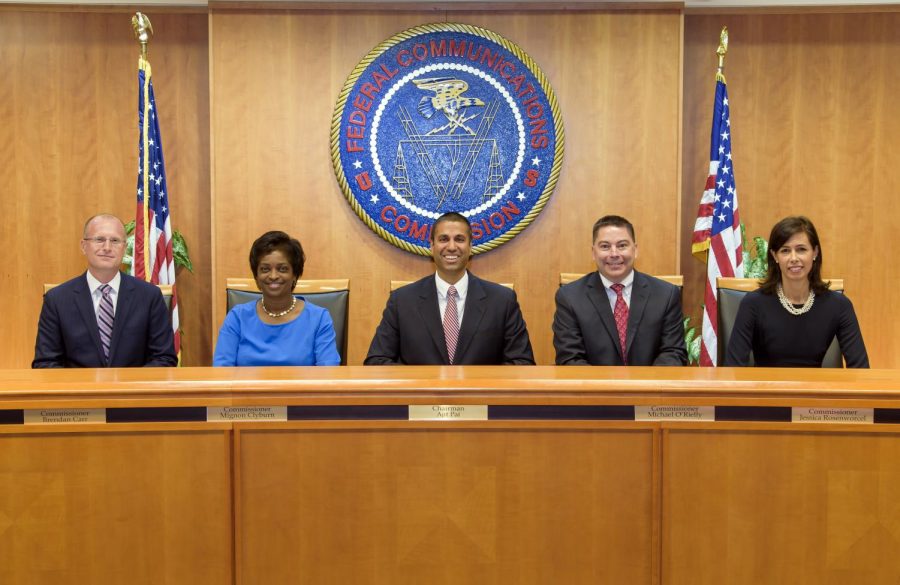Op-Ed: Net neutrality repeal gives more power to corporations
The members of the Federal Communications Commission (from left to right): Brendan Carr, Mignon Clyburn, Ajit Pai, Michael O’Rielly, and Jessica Rosenworcel.
December 22, 2017
Last week, the Federal Communications Commission voted to repeal net neutrality despite opposition by millions of Americans and many companies. The action largely reflected the big business agenda of the Trump Administration. Democrats in the Senate are now pushing to reverse the FCC’s decision to repeal net neutrality through the Congressional Review Act.
Net neutrality, first coined by law professor Tim Wu in 2003, is the idea that internet service providers should offer equal access to all legal content and applications, regardless of the source and without favoring or blocking certain data.
Without net neutrality regulations, ISPs are allowed to speed up or slow down certain data and charge consumers for specific services. The largest ISPs in the U.S. include Comcast, AT&T, Time Warner, Charter, and Verizon.
Net neutrality was last revisited in 2015 under the Obama Administration. Millions of activists pressured the FCC to make net neutrality rules that protected users. New rules were put in place that applied Title II, the basis of net neutrality, to ISPs and categorized them as telecommunication companies.
Not only has President Trump openly opposed the policies set by the Obama Administration, but he appointed conservative Ajit Pai, a former lawyer for Verizon, to lead the FCC. Verizon also happens to be one of the nation’s largest ISPs. This is another major conflict of interest.
Pai is a vocal critic of net neutrality and argues that it limits ISPs’ ability to innovate and invest in improving connections in more rural areas. His appointment marks a shift in the FCC, which is now Republican majority. Pai refers to the repeal as “restoring internet freedom.”
While the repeal might give ISPs more freedom, it’s at the cost of consumers. It will hurt small businesses, entrepreneurs, people of color, the LGBT community, and any group of people marginalized by mainstream media. The Internet should remain a fair, equal playing ground.
This issue has also brought up First Amendment arguments. Sen. Richard Blumenthal, D-Conn., even called the repeal a “danger to free speech.” Unfortunately, net neutrality isn’t technically a First Amendment right. The Constitution prohibits federal and state governments from “abridging the freedom of speech,” but nothing explicitly extends that prohibition to private companies.
While this isn’t a First Amendment violation, though, it’s still a matter of free speech, a fundamental part of our society. This repeal is a capitalistic form of censorship. It’s just another attempt by corporations to extend their power over the people.
Some opposers of net neutrality claim that if people don’t agree with the policies of a certain ISP, they can simply take their business elsewhere. But there are only so many ISPs to choose from and most have the same money-hungry agenda.
It’s 2017. We live in a era where it’s nearly impossible to function without the Internet; our lives have evolved to depend it. It’s part of our recreation, our education, our livelihood.
With this vote, big businesses are given more control over a necessity. ISPs have a big decision to make. They must choose their next move wisely. The nation will be watching.




















